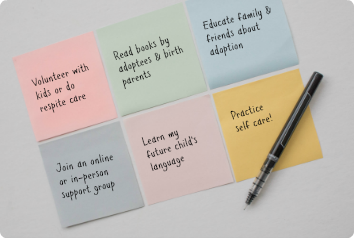 The excitement of beginning an adoption often overshadows some of the more difficult aspects of the process. However, as families progress through the various steps in their adoption, they become acutely aware of the reality that almost all adoptions involve some sort of wait time. While this wait can look different depending on individual situations and adoption programs, most families share in the experience of waiting in adoption to some degree.
The excitement of beginning an adoption often overshadows some of the more difficult aspects of the process. However, as families progress through the various steps in their adoption, they become acutely aware of the reality that almost all adoptions involve some sort of wait time. While this wait can look different depending on individual situations and adoption programs, most families share in the experience of waiting in adoption to some degree.
We recently hosted a webinar to shed light on this often emotional and difficult time as well as to offer suggestions for coping and staying active during the wait. You can watch the free webinar recording now, or we recommend you use this list of 20 things to do while you wait as a checklist and means of coping during times when the process moves slowly.
- Talk to your worker about how you’re feeling and to find new resources
- Connect with adoptive families and families going through the process
- Join a support group (online or in-person)
- Get CPR certified (including child CPR)
- Take advantage of webinars, podcasts and classes covering adoption, parenting and related topics
- Journal about your experience, or find another creative outlet
- Volunteer with children or become a respite caregiver
- Find books about adoption—remember to seek out books by birth parents and adoptees
- Prepare and educate your friends and family (We have a free webinar covering this, too!)
- Expand the diversity in your circle
- Identify mentors for your child
- Connect with medical professionals
- Take care of yourself—use coping strategies, travel, enjoy your hobbies
- Prepare your home
- Prepare for any travel—ask your worker about activities to do with your child during those first days
- Update your infant adoption outreach materials and increase your reach
- Participate in foster care adoption matching events
- Learn about your future child’s culture and attend cultural events
- Learn the language your future child speaks
- Learn about the international social/political issues that affect your child’s birth country


